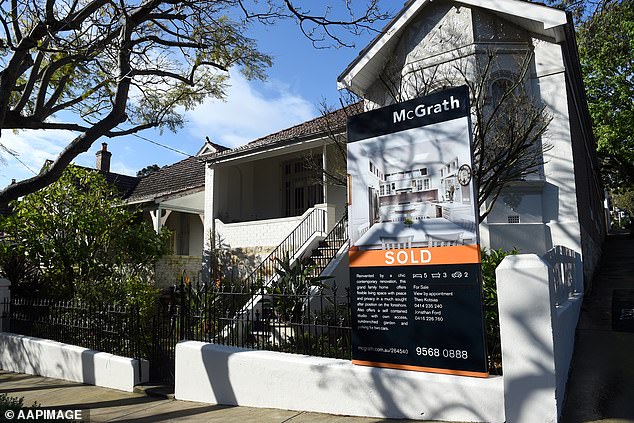I’m renting and have no intention of buying a house in Australia right now – here’s why I’m not joining the rat race
A savvy Gen Z investor has revealed why she plans to keep renting as house prices become increasingly unaffordable.
Milly Bannister, 26, says obsessing over buying a house only causes more anxiety.
“It’s a chronic build-up of anxiety, frustration and pressure – a shared experience of sheer terror, to be honest,” she told Daily Mail Australia.
‘Like many late Gen Z and early Millennials, I look around desperately at peers who have managed to get onto the housing ladder, some earlier than others, all the while thinking to myself, “Can this continue?”‘
Ms Bannister said rising house prices meant many young people lacked the confidence to invest their savings and build wealth for the future.
“With so much uncertainty, divided opinions and the cost of living constantly rising, it can be difficult to make big financial decisions,” she says.
Today, it often takes at least ten years to save up for a 20 percent mortgage, even for people with above-average salaries.
To achieve her goal, Ms Bannister turned to exchange-traded funds, which link investors’ returns to an index of shares listed on the Australian Securities Exchange. This turned $2,400 into more than $78,000 in less than a year.
Gen Z entrepreneur Milly Bannister has revealed she would rather continue renting as house prices become increasingly unaffordable

Milly Bannister, 26, said obsessing over buying a house would only cause more anxiety
“In the meantime, it might be best to put some money aside for when you’re ready and let it grow while you wait,” she said.
She now has a Stockspot account where she keeps track of her investments in the stock market and ETFs. She hopes to one day be able to finance a mortgage with these proceeds.
“I like knowing that I can withdraw money from Stockspot if I need it to put a down payment on a house, but ultimately I would prefer to just let time and compound interest do its work and retire with peace of mind, thanking myself at 26 for such a great decision,” said Bannister.
The founder of youth mental health charity Allknd has been investing $300 to $500 into her portfolio every two weeks over the past year and reports seeing “very satisfying growth.”
This strategy has seen her turn her initial deposit of $2,400 into $78,242.60 in September 2023, according to figures provided to Daily Mail Australia by Stockspot.
Ms Bannister said investing in exchange-traded funds was a much better strategy than leaving the money in the bank. She admitted she was initially hesitant to embrace the smarter investment approach after a friend recommended it to her.
‘My investment goals are more focused on the long term and my Stockspot portfolio is actually a replacement for the traditional savings account that is just gathering dust,’ she says.

Ms Bannister said high house prices meant many young people did not have the confidence to invest their savings.
‘A friend recommended Stockspot to me and I felt that this was the right time to take action. It had been at the bottom of my priority list for a while, because it seemed too big and too difficult.
“I’ve heard female financial mentors say something along the lines of, ‘The best time to invest was yesterday. The second best time to invest is today.’
“That pretty much sums it up. The source is there, use it.”
The ASX200 has risen by 8.6 per cent over the past year, significantly higher than the 4.75 per cent return you would get on a savings account at a major bank.
Data from CoreLogic shows that house prices in Australia rose 8.4 per cent over the same period to an even more unaffordable $860,454.
This is above the $640,000 threshold for a median income earner who earns $98,218 on a home with a 20 percent mortgage. This means that only median income couples can afford to buy a home.
CoreLogic calculated that it would still take someone with a low six-figure salary more than a decade to pay off a 20 percent mortgage, making smart investments even more important for people looking to enter the housing market.
